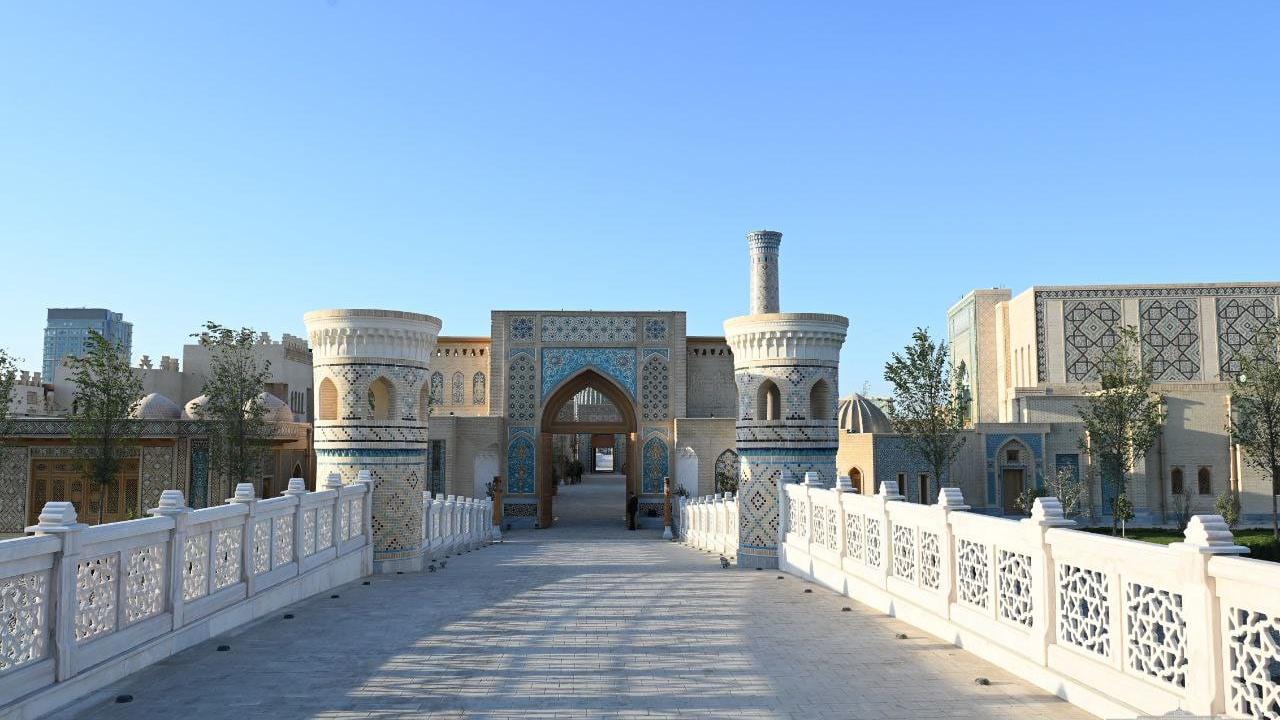Uzbekistan Tourism Relaunches: New Discovery of Old Samarkand

The decision to relaunch part of Uzbekistan’s tourism development plans have been implemented by the nation’s President Shavkat Mirziyoyev.
The history of Samarkand is millenary. Its presumable foundation dates back more than 2,700 years (the foundation of Rome dates to 2,273 years). Samarkand was once the wealthiest city in Central Asia and prospered from its location along the Silk Road, a must-see on the land and sea trade routes between China and Europe.
The Northern Road consisted of 2 routes: one from Urumqi in China continued to the city of Alma Alta in Kazakhstan and continued to Kokan in Eastern Uzbekistan; the other from Kashgar in China’s Xinjiang Autonomous Region continued to Temez in Uzbekistan and Balkh in Afghanistan.
The Silk Road’s history has its roots in the distant 2nd century BC. The expression “Silk Road” was only recently coined while labeling routes so ancient in time. Approximately 8,000 km of routes by land, to which are added by sea and by river, have not had a specific name. In 1877, about 142 years ago, the German geographer and traveler, Baron Ferdinand von Richthofen, in the introduction of his book Diaries from China, named the commercial and communication network “Die Seidenstrasse” or “the Silk Road.” [quote: A.Napolitano].
Samarkand – Ambassador of Uzbekistan in the World
The history of Samarkand with its millenary mosques, minarets, madrasas (Islamic universities) still erected to witness the architectural wonders of skilled engineers, mosaic artists, and “sparkling colors of the turquoise domes that change color with the changing of the sky” [quote: F.Cardini], and under the night lights, enchant and makes one dream.
The city’s museums keep artifacts and history from various eras, the oldest existing Koran, and the history of the leaders: Tamerlane, Genghis Khan, Alexander the Great, and Jalangtuš Bahadur “The Fearless,” considered the Founding Father of Modern Uzbekistan.
The Revival
The state committee of the Republic of Uzbekistan for tourism development has planned interventions in the country until 2025 with the aim of favoring the realization of Infrastructure, the creation of an accessible and comfortable tourist environment implementation, and the strengthening of the social role of external and internal tourism, as well as improving the quality and competitiveness of the tourism product of Uzbekistan in the national and global markets. In support is the abolition of entry visas for about 60 countries – expandable, and strengthening of the tourist police corps in each city.
The International University of Tourism and Cultural Heritage of Samarkand has the task of training the young talents necessary to manage the future operators of the country’s tourist flows. This is in addition to the plan that provides for an internship abroad with the obligation to return to serve the country.
UNWTO Heading to Samarkand
The city administration is preparing to welcome 2 million guests from all over the world starting in 2023, when the city will host the 25th United Nations World Tourism Organization (UNWTO) General Assembly from October 16-20, 2023, in Samarkand. The expansion of the Samarkand airport was completed for the occasion.
“Silk Road Samarkand”
On the eastern outskirts of the city, the “new” Samarkand was built – a luxury tourist complex of almost 300 hectares. It is called Silk Road Samarkand. Here, modern buildings have sprung up overlooking the Grebnoy canal, along with artificial waterways which in the Soviet era were used for training sessions for the national rowing team.
Around the canal are 8 new luxury hotels, shopping areas, and a convention center which in 2021 hosted the Shanghai Cooperation Organization summit with the participation of President Vladimir Putin, Chinese President Xi Jinping, Turkish leader Recep Tayyp Erdogan, Indian Prime Minister Narendra Modi, and Iranian President Ebrahim Raisi.
Eternal City
A citadel, the “Eternal City,” has arisen on the other side of the canal. It is a great attraction for the locals and by the timid approach of European tourists. The entrance to the Eternal City takes up the traditional motifs of the majestic arches of the Registan, the main square of ancient Samarkand. Inside, there are about 50 buildings with shops, squares, restaurants, and artisan shops that show off traditional costumes.
The Capital
Tashkent is the largest city in Central Asia by population and is an important and political, economic, cultural, and scientific center of the country.
The Soviet-style city features wide streets, parks, 3 of the world’s most beautiful subway lines, and a modern railway line that connects major historic cities with the “Afrosyob” high-speed train. International chain hotels as well as Italian fashion and catering are at home here.
Khazrati-Imama and Suzuk-Ota monumental complexes include the state museum of the history of the Temurids – an empire founded by Tamerlane-warlord of Turco-Mongol origins (1370/1405), the Museum of the History of Uzbekistan, and the Museum of Applied Art Arts, as well as vast parks of the modern concept.
Finally, Bukhara adds to the cultural and historical attractions of the Great Silk Road where, in addition to the monuments, the “Ark Fortress” stands out – the oldest architectural and archaeological monument in Bukhara. It rises almost 20 meters above the level of the surrounding territory of about 4 hectares.
The Country and its Cuisine: The Chorsu Bazaar in Tashkent
Millennia of history has been incorporated into the culinary art of Uzbekistan through a wide variety of recipes and traditionally prepared dishes known throughout the world such as the fragrant rice dish pilaf, which is included on the UNESCO Cultural Heritage list.
Tourism Minister Aziz Abdukhakimov
Among future objectives, concentration is on the priority markets of Europe, Russia, the Middle East, CIS countries (9 of the 15 former Soviet republics), Middle East Asia, Southeast Asia, China, South Korea, Japan, and India. Interest is focused on history, culture, golf, extreme sports, mountain, medicine, ethnic, gastronomy, rural tourism, and more.
For luxury tourism, a wide range of facilities are available including Bukhara Resort Oasis & Spa, Konigil Tourist Village, and Heaven’s Garden Resort & Spa. Helicopters and small planes are on offer for transfers.
Two projects envisage the creation of international standard golf clubs in Jizzakh and Samarkand. The one already operating in Tashkent is popular with tourists from the southeast. Niche sectors such as hunting and fishing are under development.
source: eTN




